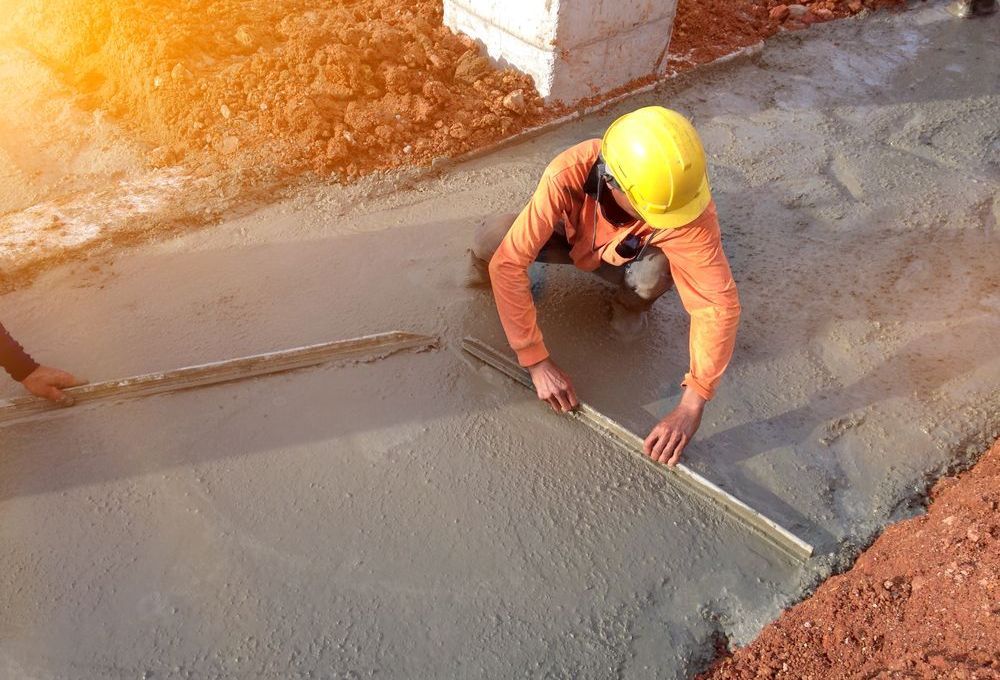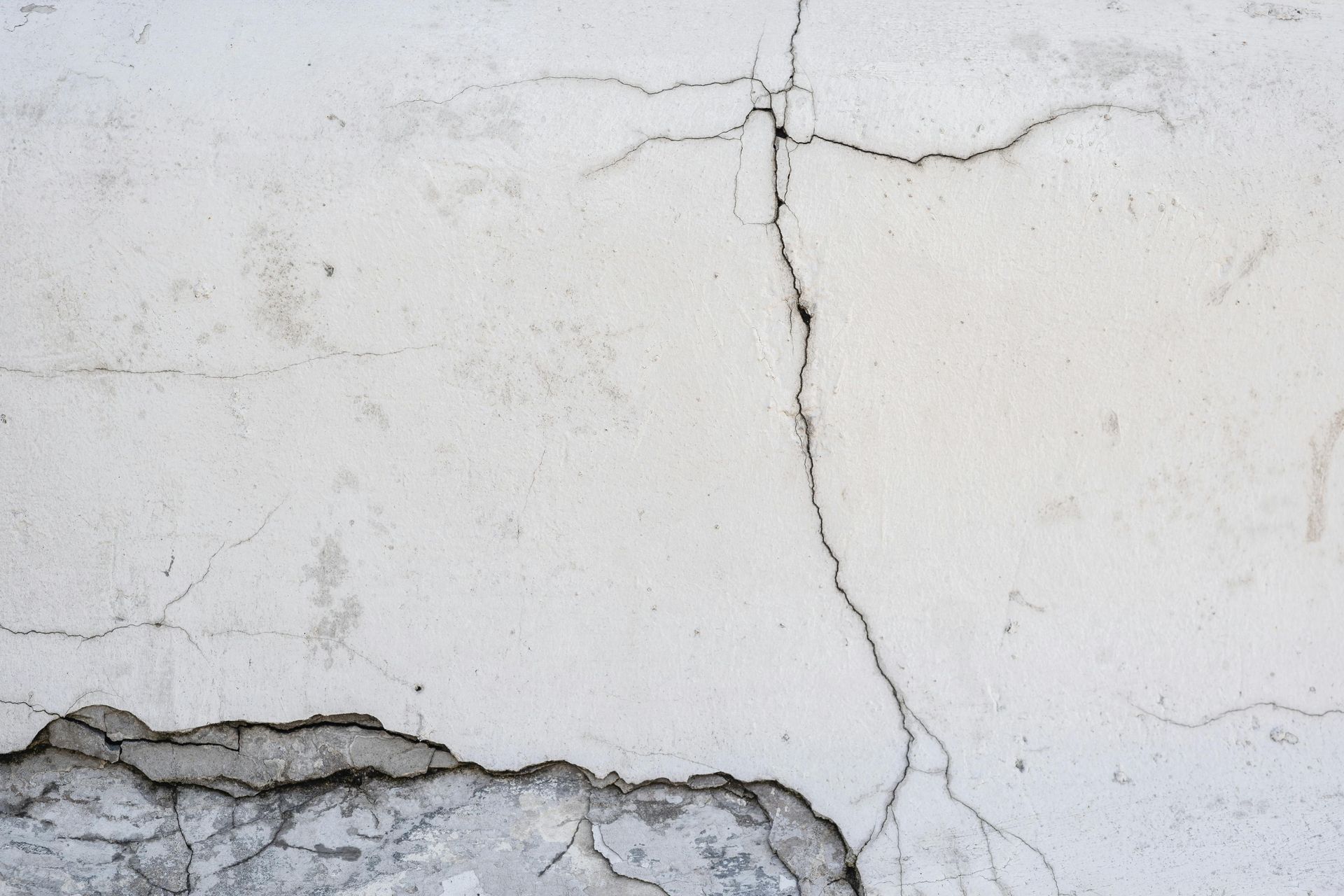Pros and Cons of Concrete Driveway

Concrete Driveway vs Asphalt: Pros and Cons of Each Option Explained
Choosing between a concrete or asphalt driveway can be a tough decision. Both materials offer their own set of benefits and drawbacks, depending on your needs, local climate, and budget. In this guide, we’ll break down the pros and cons of each option, helping you decide which one is right for your home.
What are the Pros and Cons of Concrete Driveways?
Concrete driveways are a common choice for homeowners due to their durability and clean appearance. However, it’s important to consider both the positives and the potential downsides before making your decision.
Advantages of a Concrete Driveway
Concrete driveways come with several benefits that make them stand out:
- Long Lifespan – A well-maintained concrete driveway can last 30 years or more, making it a long-term investment.
- Minimal Maintenance – Once installed, concrete doesn’t require much upkeep. Occasional cleaning and sealing are usually enough.
- Improves Curb Appeal
– Concrete offers a smooth, clean look that enhances the appearance of your home.
- Customizable Options
– You can add patterns, textures, or colors to your concrete driveway, allowing for a unique design.
- Heat Resistant – Unlike asphalt, concrete stays cooler in hot weather, making it more comfortable to walk on and reducing heat buildup around your home.
Disadvantages of a Concrete Driveway
While concrete driveways have many advantages, they also come with a few drawbacks:
- Higher Upfront Costs – Concrete driveways generally cost more to install than asphalt, which can be a deciding factor for some homeowners.
- Prone to Cracking – Over time, concrete can crack, especially in colder climates where freezing and thawing occur. Repairs can be expensive and tricky.
- Takes Longer to Install – The installation process for concrete is longer because it needs time to properly cure and set before it can be used.
- Limited Flexibility – Concrete doesn’t handle shifts in the ground as well as asphalt, making it more susceptible to damage in areas with unstable soil.
Maintenance Tips for a Concrete Driveway
To keep your concrete driveway looking great and functioning well, follow these simple maintenance tips:
- Seal Regularly – Apply a sealant every 2-3 years to protect the surface from moisture, stains, and cracks.
- Clean Off Stains Quickly – Oil, gas, and other stains should be cleaned up as soon as possible to avoid permanent marks.
- Avoid Harsh Chemicals – De-icers and other harsh chemicals can damage the surface, so use gentler alternatives in winter.
- Repair Cracks Early – Small cracks can turn into bigger problems if ignored. Patch them up as soon as they appear to avoid costly repairs later.
How Does an Asphalt Driveway Compare to Concrete?
When comparing asphalt to concrete, the differences go beyond just the appearance. Asphalt driveways have their own set of advantages and disadvantages that might make them a better fit for certain homeowners.
Benefits of an Asphalt Driveway
Asphalt driveways offer some clear benefits, especially for those looking for a more budget-friendly option:
- Lower Initial Cost – Asphalt is usually cheaper to install than concrete, making it a more affordable option upfront.
- Quicker Installation – Asphalt can be installed and ready to use much faster than concrete, often within a day or two.
- Handles Cold Weather Better – Asphalt performs well in colder climates because it’s more flexible and less likely to crack under freezing temperatures.
- Easier to Repair – If cracks or potholes form, asphalt is easier and cheaper to repair than concrete.
Drawbacks of an Asphalt Driveway
However, asphalt has a few downsides to consider:
- Requires More Maintenance – Asphalt needs regular sealing, typically every 3-5 years, to maintain its durability and appearance.
- Shorter Lifespan – While concrete can last over 30 years, asphalt usually needs to be replaced after 20 years, depending on usage and climate.
- Softens in Heat – In hot climates, asphalt can soften and become sticky, which may cause issues if you’re parking heavy vehicles or during extremely hot weather.
- Less Aesthetic Appeal – While functional, asphalt doesn’t have the same visual appeal as a concrete driveway and offers fewer customization options.
Cost Comparison: Asphalt vs Concrete
When looking at cost, asphalt generally wins in terms of upfront expenses, but the long-term costs might balance things out:
- Installation Costs – Asphalt is typically cheaper to install, ranging from $3 to $7 per square foot, while concrete ranges from $5 to $10 per square foot.
- Maintenance Costs – Asphalt requires regular sealing and maintenance, which can add up over time, while concrete requires less frequent upkeep.
- Longevity and Replacement – Concrete’s longer lifespan means fewer replacements over time, potentially saving you money in the long run compared to asphalt, which may need to be replaced sooner.
Is a Concrete Driveway Right for Your Home?
Deciding whether a concrete driveway is the right choice depends on a variety of factors. Let’s take a look at what you should consider before making your decision.
Factors to Consider Before Choosing a Concrete Driveway
Before committing to a concrete driveway, think about the following:
- Budget – Concrete driveways have higher upfront costs compared to asphalt. If you’re planning to stay in your home long-term, the investment may pay off in durability.
- Aesthetic Preferences – Concrete offers more design flexibility. If you want a driveway that matches your home’s style with patterns or colors, concrete is a solid choice.
- Maintenance Expectations – While concrete requires less maintenance than asphalt, it still needs sealing and crack repair to keep it looking good.
- Long-Term Value – Concrete’s durability and lower long-term maintenance costs can make it a better option if you’re looking for a lasting solution.
Climate Impact on Concrete Driveways
Where you live plays a big role in how well concrete holds up:
- Cold Climates – In areas with freeze-thaw cycles, concrete can crack over time due to expansion and contraction from temperature changes. Proper installation and sealing can help minimize this.
- Hot Climates – Concrete does better in hot weather since it doesn’t soften like asphalt. It also stays cooler, which can be more comfortable if you spend time outdoors.
- Rain and Moisture – If you live in a rainy area, make sure your concrete driveway has proper drainage to avoid pooling water, which can lead to cracking.
How to Maintain Your Concrete Driveway
Keeping your concrete driveway in top shape is straightforward:
- Regular Cleaning – Sweep or power wash your driveway to remove debris, dirt, and stains that can affect its appearance over time.
- Seal Every Few Years – Apply a concrete sealant every 2-3 years to protect against moisture, stains, and wear.
- Address Cracks Quickly – Fill small cracks as soon as you notice them to prevent bigger issues later.
- Avoid Heavy Loads – While concrete is durable, consistently parking heavy vehicles like RVs can cause damage over time. Use reinforced concrete for high-load areas.
Which is More Cost-Effective: Asphalt or Concrete Driveway?
Cost is a major factor when deciding between asphalt and concrete. Both materials come with different initial and long-term costs, so let’s dive into the details to see which one offers better value for your money.
Initial Costs of Asphalt and Concrete Driveways
The upfront cost is one of the most significant differences between asphalt and concrete:
- Asphalt
– Asphalt driveways are cheaper to install, typically ranging from $3 to $7 per square foot.
- Concrete – Concrete driveways are more expensive, with prices ranging from $5 to $10 per square foot. However, for homeowners looking for long-term value, this higher initial cost may be justified.
Long-Term Costs of Asphalt vs Concrete Driveways
Looking beyond the initial installation, you also need to consider the long-term maintenance and replacement costs:
- Asphalt Maintenance – Asphalt requires regular maintenance like sealing every 3-5 years, which can add to its total cost over time.
- Concrete Maintenance – While concrete requires less frequent sealing, repairs for cracks can be more expensive. Still, concrete’s durability can save money in the long run by avoiding frequent replacements.
- Replacement – Asphalt driveways typically need replacing after 20 years, while concrete can last over 30 years, making concrete the better long-term investment.
Value for Money: Asphalt vs Concrete
When considering value over time, both materials have their pros and cons:
- Asphalt
– Offers lower upfront costs but requires more frequent maintenance and has a shorter lifespan.
- Concrete – Higher initial cost, but its long-lasting durability and lower maintenance needs make it a better investment for homeowners looking for a driveway that will last decades.
Understanding the Installation Process of Asphalt and Concrete Driveways
The installation process is another important factor to consider. Both asphalt and concrete require professional installation to ensure durability and longevity, but the steps and timeframes differ between the two materials.
Steps to Install a Concrete Driveway
Installing a concrete driveway is a detailed process that requires proper planning and execution:
- Site Preparation – The area is cleared of any debris, and the ground is leveled. If necessary, a sub-base is laid down to provide stability.
- Form Setting – Wooden forms are set around the perimeter of the driveway to shape the concrete and hold it in place.
- Reinforcement
– Steel reinforcement bars (rebar) or wire mesh are added to strengthen the concrete and prevent cracking.
- Pouring the Concrete
– The concrete is mixed and poured into the forms, then spread evenly and smoothed out with specialized tools.
- Curing – The concrete needs time to cure properly. It typically takes about 7 days before you can walk on it and up to 30 days for the concrete to fully harden and reach its full strength.
Steps to Install an Asphalt Driveway
Asphalt installation is quicker and involves fewer steps, making it a popular choice for those looking for faster results:
- Site Preparation – Like concrete, the area is cleared, leveled, and a sub-base is prepared to provide a stable foundation.
- Laying the Base Layer – A layer of crushed stone or gravel is spread and compacted to create a solid base for the asphalt.
- Asphalt Paving – Hot asphalt is poured over the base layer and spread out using paving machines. The surface is then smoothed and compacted with heavy rollers.
- Cooling – Asphalt cools and hardens quickly, usually within a day or two, making it ready for use much sooner than concrete.
Choosing the Right Contractor for Your Driveway Installation
Whether you choose asphalt or concrete, finding the right contractor is crucial for a successful installation. Here’s what to look for:
- Experience
– Make sure the contractor has experience with the material you choose and can show examples of previous work.
- References
– Ask for reviews or references from past clients to ensure quality workmanship.
- Warranty
– A good contractor will offer a warranty on their work, giving you peace of mind in case any issues arise after installation.
- License and Insurance – Verify that the contractor is licensed and insured to protect yourself from any liability during the installation process.
How to Extend the Lifespan of Your Driveway Material?
Whether you choose concrete or asphalt, proper maintenance is key to extending the lifespan of your driveway. With the right care, you can avoid costly repairs and replacements down the road.
Using Sealers on Concrete and Asphalt Driveways
Sealing your driveway helps protect it from the elements and wear:
- Concrete Driveways – Apply a sealant every 2-3 years to prevent moisture from seeping into the surface and causing cracks. Sealing also helps protect against oil stains and de-icing chemicals in winter.
- Asphalt Driveways – Asphalt requires more frequent sealing, typically every 3-5 years. Sealing fills in small cracks, prevents water damage, and protects the surface from UV rays, which can cause the asphalt to deteriorate over time.
Preventing Cracks in Concrete Driveways
Cracks are the most common issue with concrete driveways, but with some preventive steps, you can keep them in check:
- Install Proper Drainage – Ensure that your driveway has proper drainage to avoid water pooling, which can lead to cracks over time.
- Avoid Heavy Loads – Repeatedly parking heavy vehicles on your driveway can stress the concrete, leading to cracks. If you plan to park large vehicles, consider using reinforced concrete.
- Seal Regularly – As mentioned earlier, sealing your concrete driveway helps prevent moisture from entering and causing cracks, especially in regions with freeze-thaw cycles.
Repair and Maintenance Tips for Asphalt Driveways
To keep your asphalt driveway in top shape, follow these maintenance tips:
- Fill Cracks Early – Address cracks as soon as you spot them. Ignoring small cracks can lead to larger ones that are harder and more expensive to repair.
- Seal Regularly – Regularly seal your asphalt driveway to protect it from water, UV rays, and oil spills, which can weaken the surface over time.
- Avoid Sharp Objects – Things like sharp tools or heavy equipment can dig into the asphalt and damage the surface, so use caution when working around your driveway.
Conclusion
Both asphalt and concrete driveways have their benefits, but choosing the right one depends on your needs and priorities. Concrete driveways offer durability, low maintenance, and a wide range of customization options, making them an excellent long-term investment for many homeowners. While they come with a higher upfront cost, the long-lasting value and appeal of concrete often make it worth the extra expense.
If you're looking for a reliable, professional service to install your concrete driveway or other concrete structures, Maine Street Concrete is your go-to option in Grand Island, Nebraska. Whether you need concrete driveways, walkways, patios, sidewalks, or even retaining wall installation and decorative concrete, they have the expertise to handle both residential and commercial projects. With a reputation for quality and customer satisfaction, Maine Street Concrete is ready to bring your vision to life.
FAQs
How long does it take to install a concrete driveway?
It typically takes about 1-3 days to install a concrete driveway, depending on the size of the project and weather conditions. However, the concrete needs about 7 days to cure before it can be walked on and up to 30 days for it to reach its full strength for heavy vehicle use.
Can I pour concrete over an existing asphalt driveway?
It’s not recommended to pour concrete over an existing asphalt driveway. The asphalt can shift and cause the concrete to crack. It’s better to remove the old asphalt and properly prepare the base before pouring new concrete.
What causes cracks in concrete driveways?
Cracks in concrete driveways can be caused by several factors, including poor installation, heavy loads, freeze-thaw cycles, or water infiltration. Regular maintenance, sealing, and proper drainage can help prevent these issues.
How often should I seal my concrete driveway?
For best results, you should seal your concrete driveway every 2-3 years. This protects it from moisture, stains, and general wear and tear, helping to extend its lifespan.
Is asphalt a good option for colder climates?
Yes, asphalt tends to perform better in colder climates because it’s more flexible and less likely to crack under freezing temperatures. However, it may require more frequent maintenance compared to concrete.
Can a concrete driveway handle heavy vehicles like trucks or RVs?
Yes, concrete is strong enough to support heavy vehicles, but you may want to use reinforced concrete in areas where large trucks or RVs will be regularly parked to avoid potential damage.










